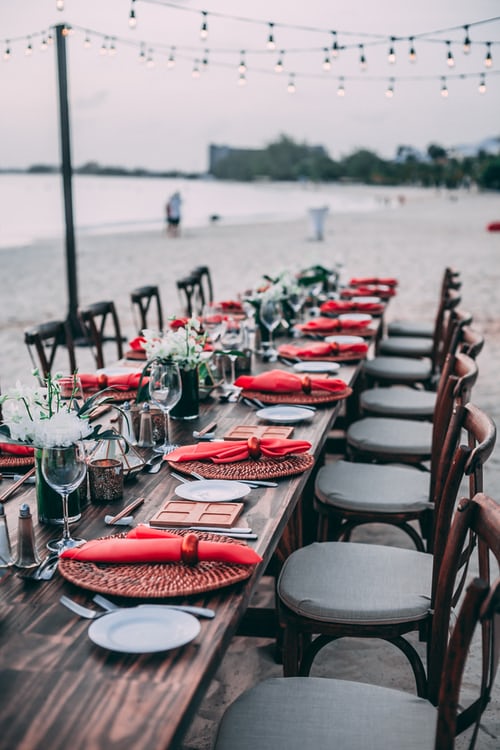
A modern playbook for the art of conversation
Everyone hates meetings. Most of us concede that they are a waste of time and an opportunity for the preening and posturing of only the most powerful and obnoxious. From walking meetings to virtual meetings, agendas and catering, corporations are hungry for good strategies and creative ideas for making meetings less mind-numbingly boring.
In a generation where few have heard of Emily Post, teaching the art of hosting, practical listening skills and allowing everyone a voice can be surprisingly effective when it comes to creating the kind of psychologically safe spaces which Google has made famous. It’s no coincidence that these are also the kinds of environments where innovation flourishes and meetings are most effective.
Earlier this year, Harvard Business Review ran a piece called “Why your meetings stink and what to do about it?” Author Stephen G. Rogelberg says that “the goal should be not to kill all meetings but to eliminate the ineffective or unnecessary ones and improve the quality of those that remain.”
The challenge of course when it comes to any gathering which involves human dynamics, is how best to do this. “It’s easy to simply show up and default to the usual way of doing things. But when you’re a steward of others’ time, you owe it to them to make some modest upfront investment.” says Rogelberg.
While the number of books on how to run better meetings and host richer conversations at work continues to grow in number and in quality, they are a mere hors d’ouvre when compared with the smorgasboard of offerings around anything to do with the culinary arts. We’ve come a long way since Julia Child was the last word on cooking. From Nigella Lawson to Nigel Slater, MasterChef to Chef’s Table we are spoilt for choice. Game of Scones is the recreational choice for the meeting-weary when weekend strikes.
Strangely though, it’s in the sanctity of home and hearth that little has changed in the way we run our dinner parties. There’s still a chasm between how we set our tables and the kinds of conversations that occur around them. The food might be delicious and the table settings sublime. But it’s unusual for any but the most unusual host or hostess to remember the kind of conversational decorum that is in fact a whole lot more common in the boardroom than it is around our dining room tables.
The big difference between meetings and dinner parties is that we know the former are boring but dinner parties are meant to be fun.
Priya Parker the author of the Art of Gathering says
“I like to tell people that Martha Stewart’s greatest crime wasn’t insider trading, it was telling a generation of hosts that gathering is about fish knives, flowers and canapés; that if you get the things right, magic will happen. One of the documents I found that illustrated this for me was a party-planning guide on Stewart’s website. It’s a 29-item checklist and only three of the items focused on people.”
A great dinner party isn’t just about good food and wine. Usually tables are full and conversations are empty. But what we are really craving, is meaningful conversation, human connection, forming closer bonds with our inner circle and meeting interesting friends of friends who expand our worlds.
It’s bad enough not meeting anyone new (At what age do we decide: “This is it. I’ve met all the people I need to know, the cart is closed”?)
What’s eminently worse is having to listen to the same voices who continue to dominate while displaying no curiosity about new opinions, views and voices.
Often, the most interesting dinner parties are the ones where no-one knows each other or at the very least where not everyone belongs to the same social circle. Awkwardness can dissolve into lively discussion. Learning to listen can result in new learnings and surprise connections.
It requires effort to step out of one’s social comfort zone, but in the same way that organisations benefit from diversity, so do our communities. Something special happens when people can’t get stuck on small talk, work, school and holidays.
So even though the next dinner party you host doesn’t need to have an agenda, a chair and a stopwatch, perhaps the next time you decide to invite people over it’s time to borrow some of the pre-planning discipline from the corporate world.
Focus first on purpose before getting overwhelmed with logistics and details. Ask yourself “Why am I hosting this gathering? Who should be part of it? What do I want to achieve? “
Make a point of introducing everyone to each other and seating your guests thoughtfully. Ask questions which encourage personal stories rather than opinions.
Sometimes generosity of spirit is even more important than generosity of food and drink. It’s time to shift our focus away from recipe books and table settings and focus instead on the timeless ingredients that create magic between people.

